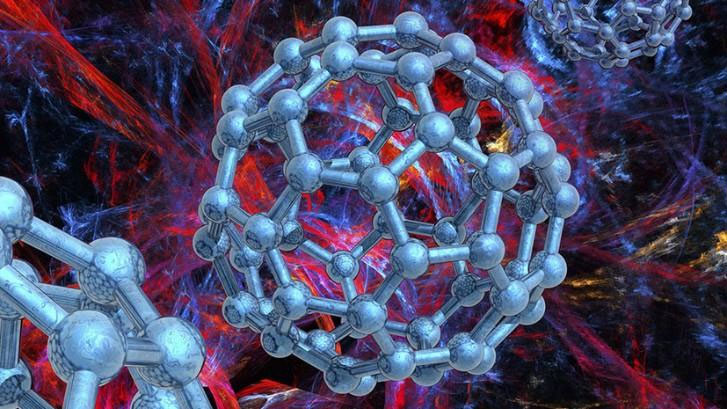Russia has developed a new source of anti-virus medicine
Traditionally, medicine cannot use fullerene to make drugs because fullerene is insoluble in water. Now, Russian scientists have obtained compounds to fight viruses that cause diseases such as HIV, flu and herpes with a unique combination of carbon fullerene atoms with different derivatives with high antiviral activity.
According to RT, the Skolkovo Institute of Science and Technology (Skoltech), under the guidance of Professor Pavel Troshin, has developed a method of producing solutes needed to combat dangerous viruses, including HIV.

Carbon fullerene - (Image: Getty images)
Fullerene was randomly synthesized in 1985, but was later discovered in nature and in space, significantly increasing the number of known carbon isotopes, previously limited to graphite, diamond and amorphous carbon like soot and charcoal. Scientists have focused on fullerene research both in chemistry and technology applications, especially in materials science, electronics and nanotechnology.
In medicine, fullerene carbon compounds are known to have antiviral properties . These compounds inhibit the vital activity of the virus and prevent their reproduction. But until recently, scientists couldn't get a full drug based on those compounds - fullerene molecules that didn't dissolve in water and other biological environments.
Russian scientists overcome this situation by detecting a reaction that enhances the anti-virus properties of fullerene carbon derivatives and makes them soluble in water. A line of fullerene derivatives with different anti-viral properties, is being tested on animals.
Russian scientists explain that in their latest work, they focused on a combination of inhibitors of dangerous viral infections such as HIV, a wide range of flu, herpes simplex and cytomegalovirus, using effective Fullerene derivatives as a multifunctional platform. As a result, they refined the anti-virus properties of the new compounds and established the most important correlation between the structure of the compounds and their antiviral activity.
- Australia produces highly effective new anti-influenza drugs
- The HIV resistant virus strain is at risk of spreading
- The source of spreading Ebola virus in Liberia
- Russia successfully tested the vaccine - asking for HIV
- OpenOffice.org: 'Macro virus is not a virus'
- MIT developed a self-correction system for software
- Check out the most dangerous viruses on the planet
- Discovering new, more dangerous HIV strains in Russia
- The researchers developed a more sensitive way to find HIV drug resistance
- Scientist found HIV virus rejected for Nobel Prize
- Discovering a virus that can make people stupid
- The most dangerous MERS virus is now dangerous
 13 causes of non-itchy rash
13 causes of non-itchy rash How the mouse with human ears changed the world?
How the mouse with human ears changed the world? The truth about 'fried rice syndrome!
The truth about 'fried rice syndrome! What is dental implant?
What is dental implant?